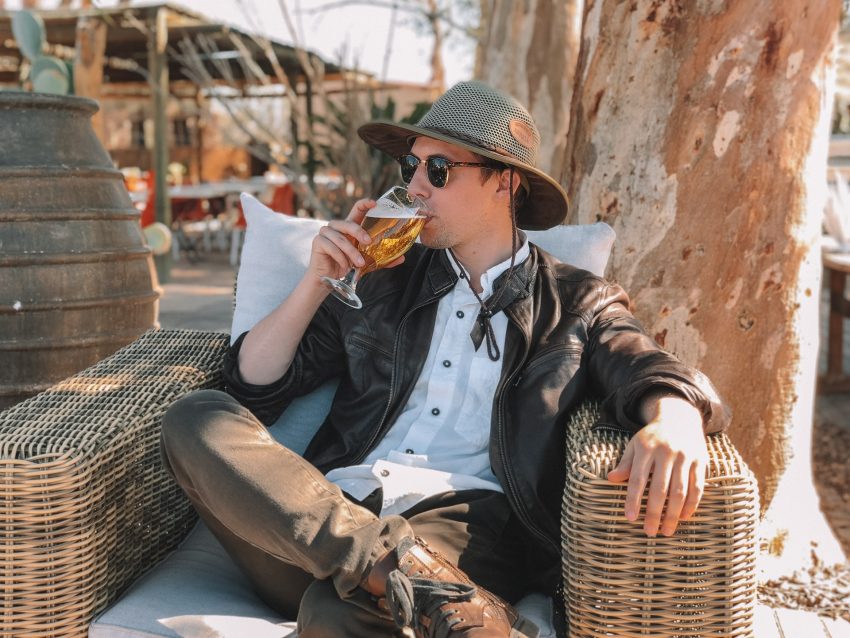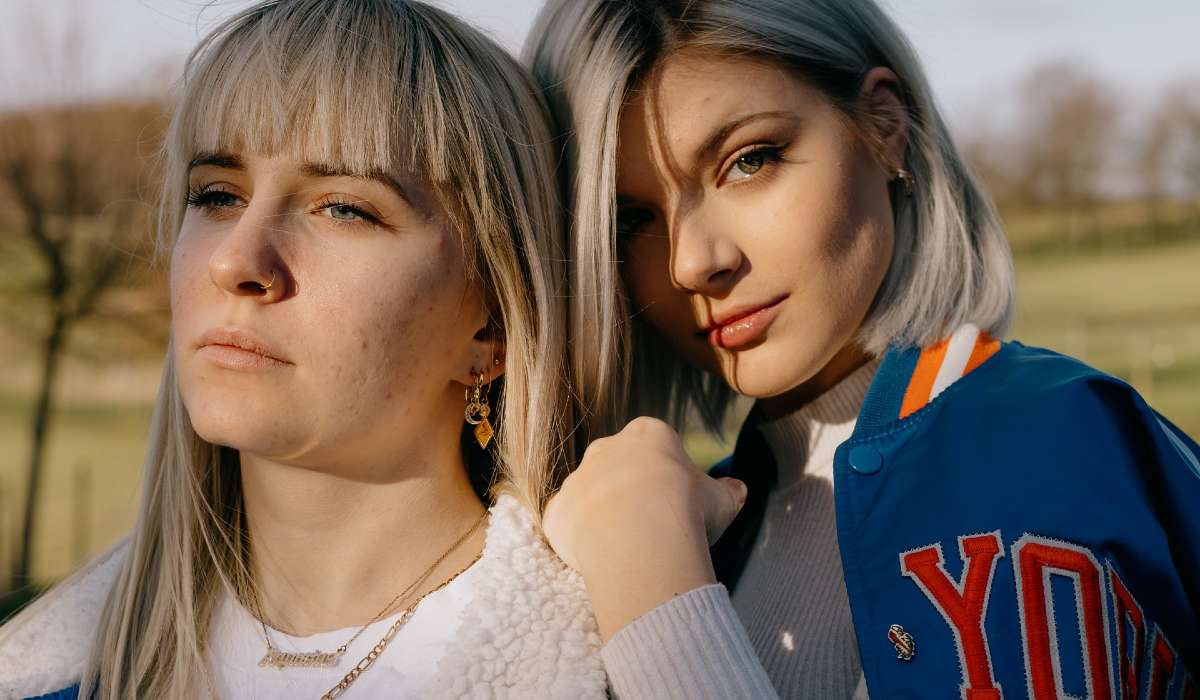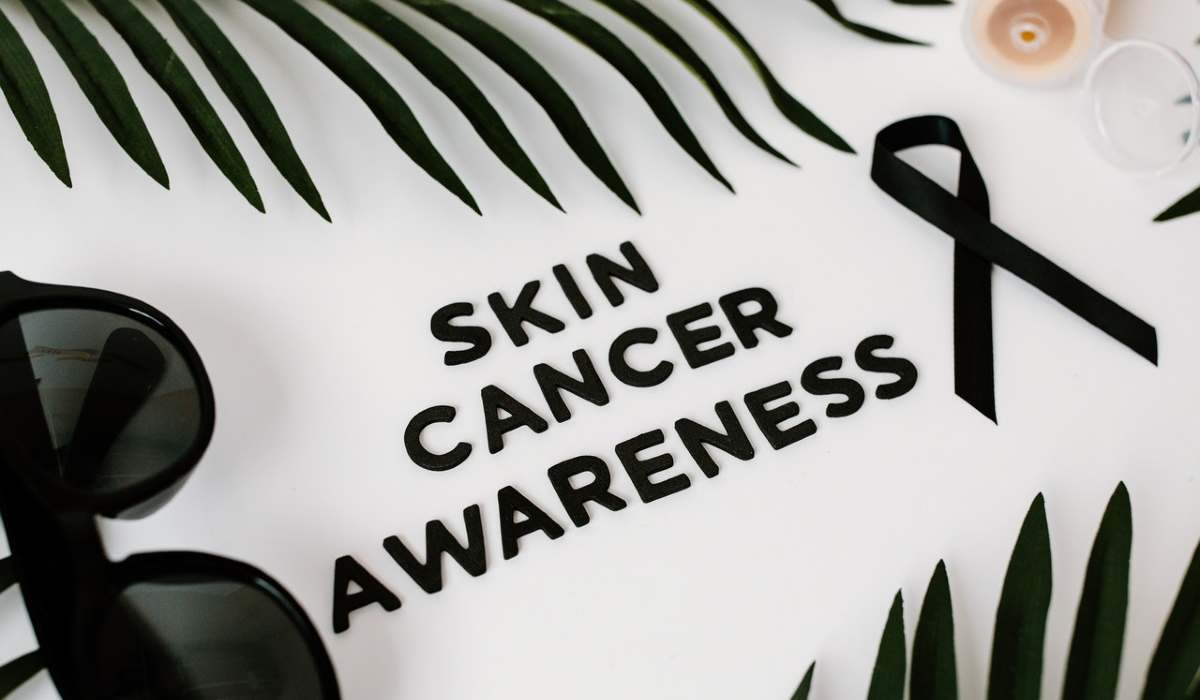Changes in our skin as we age are inevitable, including loss of moisture, changes in…
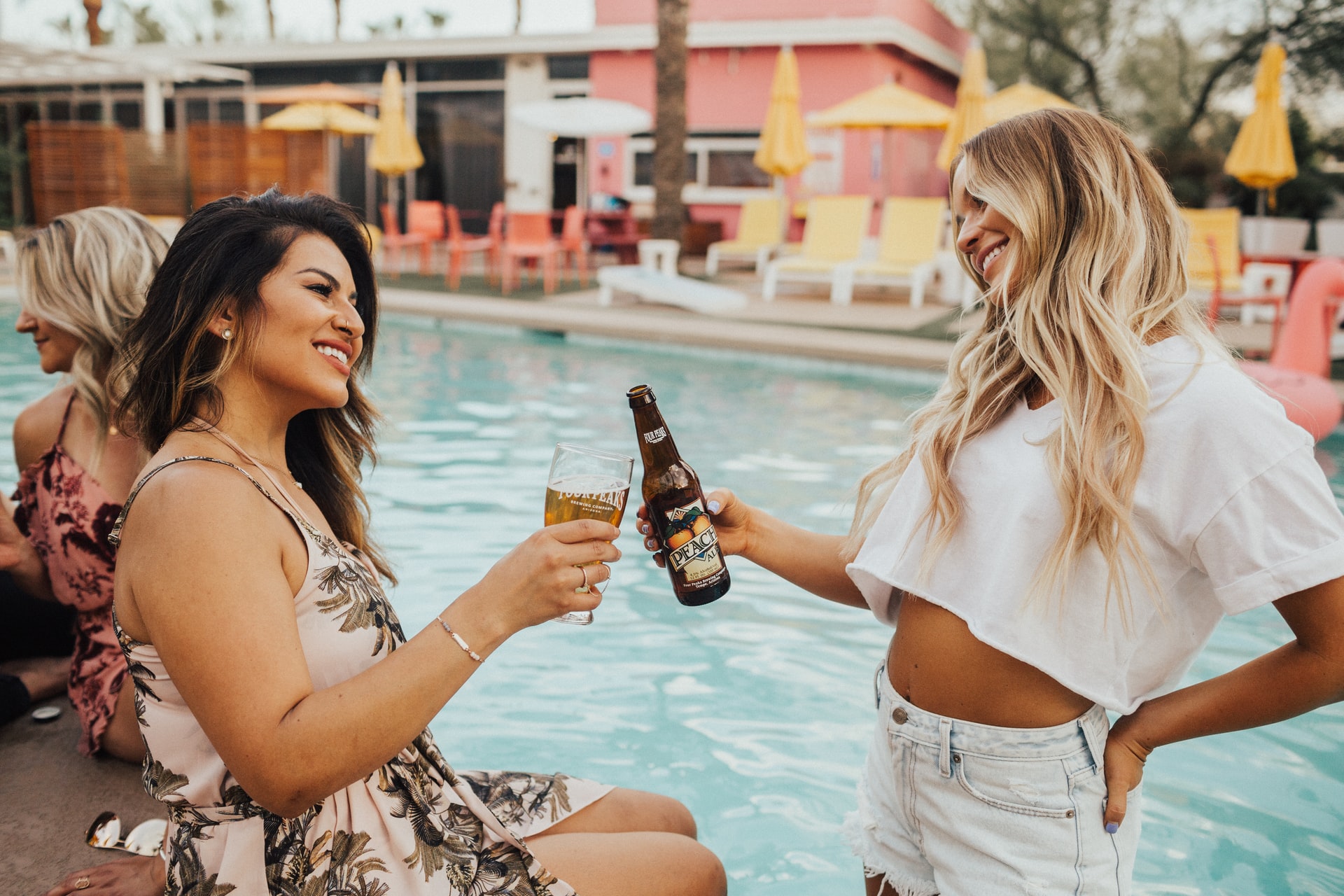
Alcohol & Your Skin: The 5 Worst Culprits for Skin Damage
The summer months are here (in theory), and the sun is out (again, in theory). For many of us, that means lounging in the garden, warm afternoon rays on our skin, a drink in hand. There’s the possibility of a barbecue to add to the moment… and a probability of that drink containing alcohol.
Unfortunately, even if you ignore the damage the sun does to your skin (which should be zero, if you’re sticking to our SPF rules), there’s more than enough damage going on from that shiny glass (or bottle) in your hand.
Delicious as a summer cocktail may be, we’re all well aware that alcoholic drinks are far from good for us. Some of us will notice this simply as a little redness in the face. But you might not be aware that alcohol has a number of other unpleasant effects. And yes, that’s entirely aside from a hangover the next day.
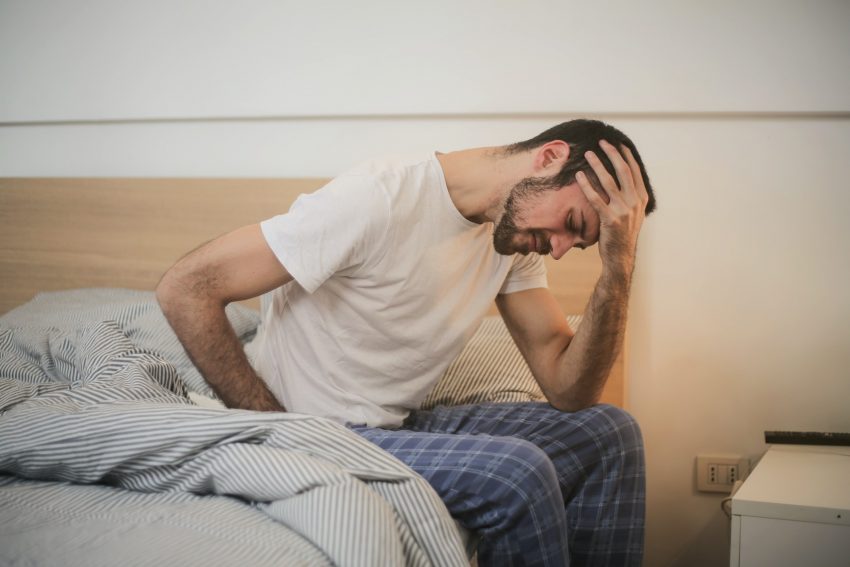
Side Effects of Alcohol
If you drank enough for a throbbing head and a dodgy stomach, then it should come as no surprise: booze is a toxin for our skin, too.
Alcohol dehydrates our bodies. Aside from making you want to guzzle a gallon of water, this also leads to dry, dull skin, enlarged pores, and a loss of elasticity. Well, that’s going to contribute to the development of wrinkles.
From whisky to White Russians, alcohol deprives our skin of much-needed nutrients and moisture. And guess what? Those are the two key ingredients to youthful, radiant-looking skin.
In fact, alcohol is a diuretic, like caffeine. Which means it actively draws water from the body. That’s why you’re always running to the loo on a night out.
Then, of course, there’s the inflammation. Even a cheeky tipple will cause your skin to flush, grow red, and become inflamed. If you already struggle to manage acne or rosacea, you’ll be familiar with how a few drinks can worsen your skin on a large scale.
But even for normal skin, you can expect a blotchy complexion and some puffiness.
The thing is, alcohol is usually high in sugar. Whether it’s from mixers, or simply the way it’s made, this sugar will crystallise in your skin cells. And that makes your skin appear dull and visibly deflated.
Which alcoholic drinks are the worst for your skin?
It makes sense that some drinks are worse than others. Particularly if you go as far as to consider the source materials used for the production of certain types of alcohol. So which ones are the best (so to speak) and which ones should you be avoiding?
1. Dark Spirits
Typically also the culprits for the worst hangovers, rum, whisky and bourbon are up there as the biggest bad boozes. Whisky is made of barley and grains, as is bourbon. And rum is basically sugar, there are no two ways about it.
So, it’s no surprise that these three are going to make your skin suffer.
No matter whether it’s a JD and coke, on the rocks or blended into a fruity cocktail, all of them contain congeners, which are known to make hangovers worse. In fact, bourbon has 37 times the amount of congeners that vodka does in the same amount of alcohol. That’s a hangover that’s twice as likely to happen, and definitely going to be worse.
Ouch.
2. Clear Spirits
The paler it is, the better – but that doesn’t mean it’s all that good for you.
Gin, vodka and tequila all contain considerably fewer additives than dark spirits, and our bodies can process them much quicker. Luckily for us, that means they’ll have less of an effect on our skin, but minimal damage is still damage.
Light spirits don’t contain congeners, but alcohol is still going to dehydrate you. You’re still going to be craving a fry up in the morning. (And let’s face it, that’s not likely to help with your skin either…)
3. Red Wine
There are rumblings all the time about red wine being the healthier choice when it comes to alcohol. Yes, it contains antioxidants. But this is one of the rare times that antioxidants don’t equate to a good thing.
Red wine isn’t filtered in the way that some drinks are. This means it’s harder for your liver and kidneys to process it and expel it from the body. While it’s in your system, that means redness, flushing and a delightful blush across… well, your whole face. So if you’ve got rosacea, red wine is a big no-no.
4. White Wine
Similar to dark spirits, most white wines tend to have high sugar content. For your skin, that means inflammation and bloating, which isn’t a good look on anyone.
5. Cocktails
Ah, cocktails. No matter what anyone says, we’re certain that there’s not an alcohol drinker in the world who doesn’t appreciate the flare of a garnish and a tiny umbrella… unfortunately, they’re not as fun for your skin.
Most cocktails tend to be made with spirits, so their alcohol content can vary depending on your order (and bartender). However, the mixers in alcohol are often fruity, sweet and terrible for our skin. Clear complexions and cocktails simply don’t mix.
That sugar content can quickly lead to inflammation and cell damage, which contributes to acne, dull skin and a sallow appearance. And if you’re a fan of a margarita, remember that sugar and slate combined are doing your skin no favours.
So do I have to give up alcohol?
No, of course not. But cutting back will do a lot for your skin. Cutting it out altogether? Great! (But we know that most people aren’t likely to stick to that.)
If you want to try to counteract alcohol’s effect on your skin, then remember to stay hydrated. Drinking plenty is important all the time, but when you’re adding booze into the mix, it’s all the more crucial.
Alcohol dehydrates your skin because your kidneys are working overtime trying to flush out the poison in your system. And make no mistake, all alcohol is poison, no matter how much you love it.
The best thing you can do for your kidneys is to make sure they get all the water they need to do their job properly. And you’ll see the results in the mirror.
What else can I do?
Exercise, sticking to your skincare routine and switching to mocktails can all help your skin to recuperate.
Work Out
Exercise helps to improve our blood flow, which keeps skin looking plump and youthful. Throwing in the odd supplement won’t hurt either, particularly vitamin A, which helps our skin cells to regenerate.
Stick To Your Skincare
Making sure you remove any make-up and properly cleanse your skin before bed will make a world of difference, too.
Yes, we know when you’ve had a few, the last thing you want to do is start your twenty-minute routine. But consistency is a big part of keeping your skin healthy. And if you’re already damaging it through drinking, it’s only fair to give it the chance to recover.
If the whole thing feels like too much, then promise us you’ll at least cleanse and moisturise.
The Magic of Mocktails
Most mocktails are made with similar high-sugar ingredients to regular cocktails. Of course, this means that in some ways, you’re still causing skin damage. But you’re at least halving it (and enjoying a little treat).
If that doesn’t sound appealing, there are plenty of non-alcoholic beers, wines and mixers available in most bars and supermarkets.
Try an Extra Pillow
This one might sound a little mad, but sleeping on an extra pillow and propping up your head as you sleep can do a lot to reduce puffiness in the face and eyes. As we sleep, bodily fluids tend to pool in our faces, so an extra pillow helps gravity to do the work.
What happens if I give up alcohol?
Let’s face it, most of us aren’t going to give it up altogether for the sake of our skin. But it’s important to know what a difference it can make if you do.
Stopping drinking, or even cutting back on the booze can lead to plumper, more youthful and hydrated skin. Which in turn makes your skin seem brighter, reduces the appearance of fine lines and wrinkles and shrinks your pores.
If that wasn’t enough, an alcohol-free existence can improve acne and rosacea, calm redness and puffiness and make your skin healthier overall.
Which really is something to think about.

